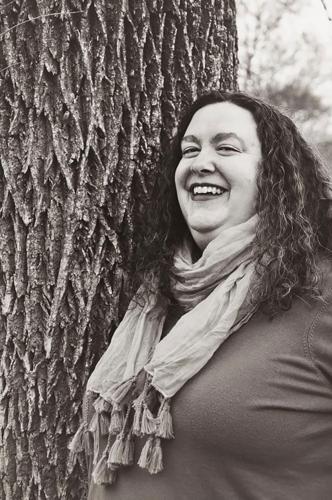
Betsy Phillips
Longtime Nashville Scene contributor Betsy Phillips knows Nashville history. She also knows patience and perseverance. Back in 2017, Phillips wrote a story about the 1957 bombing of Hattie Cotton Elementary School that sent her down a research rabbit hole and eventually became a book — Dynamite Nashville: Unmasking the FBI, the KKK, and the Bombers Beyond Their Control, which will be released July 16 via Third Man Books. In 2017, Phillips requested the FBI case file on another civil rights-era act of terrorism — the bombing of NAACP leader, city council member and famed civil rights attorney Z. Alexander Looby’s home — and then again in 2020. Six years after the initial request, she received the file and finished her book.
The Scene reached Phillips by phone while she was at the Nashville City Cemetery — one of her favorite spots. “I had a little time to burn before lunch, so I’m just hanging out with my dead friends,” Phillips says.
What is your book about?
It is me trying to solve the three unsolved integration-era bombings here in Nashville: Hattie Cotton Elementary School in September 1957, the Jewish Community Center in March 1958 and Z. Alexander Looby’s home in April 1960.
Why Z. Alexander Looby? Why this bombing?
It was understood that the bombing happened because Looby was one of the attorneys for the sit-in movement. But what I found is that racists in town had been targeting Looby by name since the early ’50s. He had been on their radar since the Columbia riots case in 1946. Looby, Thurgood Marshall and Maurice Weaver were the lawyers on that case. He embarrassed racists by winning in a very white-supremacist judicial system. So when schools started to desegregate in Nashville, the racists brought in the prosecutor on the Columbia case to face off against Looby, and it didn’t work again.
Does history repeat itself? If so, how do we stop it?
One of the most interesting and distressing things about doing the research on this book is how aware the racists were, and are now, of this heritage — this tradition of racism in Tennessee. We tell ourselves that when these racial incidents pop up, they’re a one-off or they’re disconnected, but when you start digging in, you realize that we’re failing to see they have this legacy they’re participating in, and past events that they’re taking inspiration from. We think if we’re not hearing from them, and we arrest one guy who does this one thing, then that solves the problem. It’s an ongoing movement from at least the first Klan. This has been generations. In a way, we’ve gone from fighting an open Civil War to fighting a more covert civil war.
Who do you hope reads this book?
I hope Nashville reads this book. That was my hope in writing it: that this would be a way to bring this complicated history to Nashville in a way that people find easy and accessible. That it would give them information about the town and how we’ve ended up here. Where the faultlines in our community are and why they’re there.
Do you mean a specific community within Nashville or anyone who lives here?
I don’t think that any Black person who lived through this needs to read the book. Every older Black person I’ve talked to about this book has been like, “Yeah, that’s what I thought.” But for people who are new to the city, younger people, or white people who have lived here their whole lives. I’ve met people who went to Hattie Cotton Elementary School and never heard that there was a bombing at that school.

Who needs to read this book?
It sounds a little grandiose, but I would like the FBI to read the book and genuinely take to heart what’s in it, the role they played, and the fact that they’re still using these tactics to “keep us safe.”
Not only did the FBI lie to me — they told me that there was no file left on the Looby bombing, and there was — but in the files that were available to me, I found that the FBI kept witnesses from the Nashville police. They kept confessions private. They were repeatedly asked by law enforcement in Southern states to help coordinate investigations, and they declined. They kept saying repeatedly that these crimes aren’t related.
It’s amazing when you think about it, because a bombing would happen, then the bomber would call the newspaper or the police department and say, “This is the Confederate Underground. We’ve just blown up (thing they blew up).” If those bombings aren’t related, then we have a series of racist psychics in the South, who also knew to say that they were members of the Confederate Underground.
What did the Nashville community mean to you while writing this book?
With the exception of the FBI, I felt so supported by literally everybody I encountered through this book. I felt like this was something Nashville wanted settled. They wanted to know what happened. Anybody I talked to was forthcoming and supportive. I was able to talk to people who have not talked to me about any other subject, and who went out of their way to say, “Let me look into this. Let me make some calls for you.” I got help from [Rep.] John Lewis and his people in Georgia. The Tennessee State Library and Archives was a tremendous resource.
So as traumatic as writing about this stuff was, sometimes even as scary as it was, I always felt like I had Nashville’s support. That made it easy for me to continue writing. People want to know this. They are tired of this being a long-held secret. That feels good about the place you live in — when everywhere you go, you say, “This is what I’m doing,” and people say, “OK, let’s help.” It’s really tremendous.



